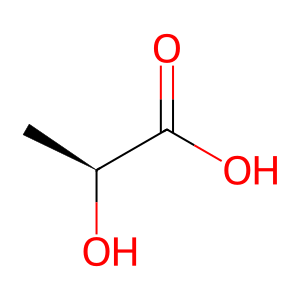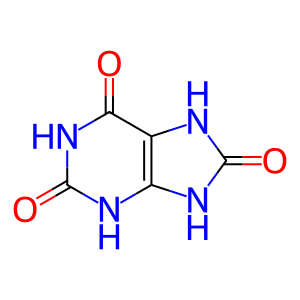Reaction: SLC22A12 exchanges extracellular urate for cytosolic LACT
- in pathway: Organic anion transport
Urate is a naturally occurring product of purine metabolism and is a scavenger of biological oxidants. Uric acid readily precipitates out of aqueous solutions causing gout and kidney stones. Due to this ability, changes in urate levels are implicated in numerous disease processes. The human gene SLC22A12 encodes urate transporter 1 (URAT1), predominantly expressed in the kidney and is involved in the regulation of blood urate levels. This transport can be trans-stimulated by organic anions such as L-lactate (LACT) (Enomoto et al. 2002). Defects in SLC22A12 result in idiopathic renal hypouricaemia (lack of blood urate) (Wakida et al. 2005).
Reaction - small molecule participants:
LACT [extracellular region]
urate [cytosol]
LACT [cytosol]
urate [extracellular region]
Reactome.org reaction link: R-HSA-561253
======
Reaction input - small molecules:
(S)-lactic acid
7,9-dihydro-1H-purine-2,6,8(3H)-trione
Reaction output - small molecules:
(S)-lactic acid
7,9-dihydro-1H-purine-2,6,8(3H)-trione
Reactome.org link: R-HSA-561253


